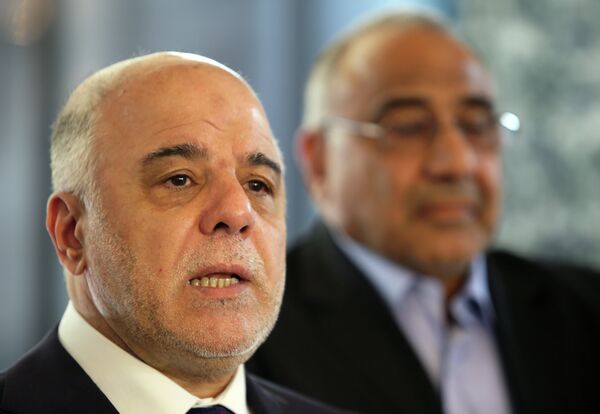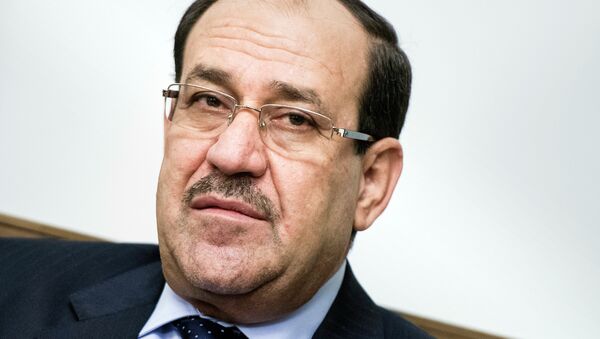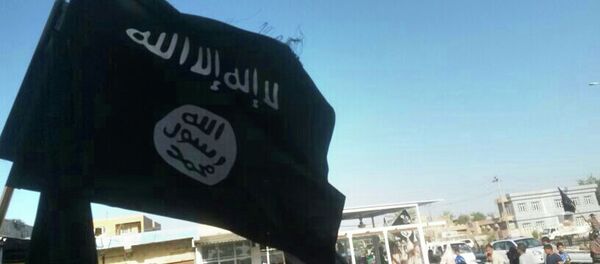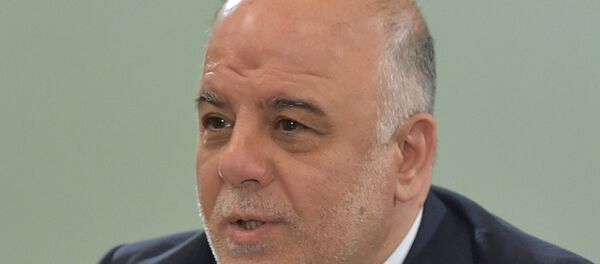According to an Iraqi MP, Mohamed al-Karbouli, parliamentarians voted with a show of hands in favor of the motion.
An Iraqi parliamentary panel has been investigating what had brought about the fall of Mosul to ISIL last year. The report will now go to the public prosecutor and Prime Minister Haider al-Abadi, who has the right to refer officers for court martial.
Nouri al-Maliki, currently one of the country's three vice presidents, is among dozens of officials named in a parliamentary report on why the city fell with so little resistance. He has been widely blamed for allowing corruption to thrive during his tenure as prime minister, including in Iraq's security forces.

Maliki is accused of appointing military chief on personal rather professional considerations, meaning that the army was underprepared for the conflict.
When Islamic State fighters launched an assault on Mosul in June 2014, Iraq's army rapidly collapsed, and ISIL swiftly took control of more than a quarter of the country's territory, proclaiming a "caliphate" and threatening Baghdad.
ISIL Terrorists Kill over 2,000 People in Iraqi Mosul since Summer 2014 http://t.co/hHDlBGCuVs
— Digital Resistance (@dgtlresistance) August 7, 2015
At the time Maliki accused unnamed countries, commanders and rival politicians of plotting the city's fall.
But the parliamentary report places responsibility on him as well as on Mosul Governor Atheel al-Nujaifi, former acting defense minister Sadoun al-Dulaimi, former army chief General Babakir Zebari and Lieutenant General Mahdi al-Gharrawi, former operational commander of Nineveh province, of which Mosul is the capital.
Others accused include Nineveh police commander Major General Khalid Hamdani, former Deputy Interior Minister Adnan al-Assadi, former army intelligence chief Lieutenant General Hatam al-Magsousi and three other Kurdish members of the Iraqi security forces.
Committee investigating the fall of #Mosul in June 2014 has announced that those who should be held responsible are: pic.twitter.com/FSi0m1EX9M
— Haidar Sumeri (@IraqiSecurity) August 16, 2015
The fall of Iraq's second largest city in June 2014 exposed the failings of a governing system defined largely by ethno-sectarian party patronage, with Maliki suppressing Sunni representation which in turn pushed the Sunnis into the hands of ISIL.
People want to take #Maliki to court #Iraq #IraqiTwitter pic.twitter.com/xE2hZyndQz
— Qaraty_Hawlere (@Piazy_Tar) August 7, 2015
Installed in 2006 with US backing, Maliki's first permitted US forces to pursue the Shia militia of Moqtada al-Sadr in Baghdad and later ordered his own forces to attack the militia in Basra. But when the Americans were leaving he arrested Sunni ex-insurgents who had agreed to fight al-Qaida, as well as top Sunnis in his government. As sectarian violence returned to Baghdad, Maliki came to be seen by Iraqis as a miniature Saddam Hussein.
If u think the US was only anti Saddam, or Qasim u are mistaken it should have come as no surprise when they turned on Maliki. #Iraqitwitter
— Iraqia (@IraqiVegan) August 15, 2015
These days despite the renewed assistance and training from US advisers, the Iraqi army remains plagued with problems and has continued to lose territory to the Islamic State. There is a separate investigation into how the western city of Ramadi fell to the militants earlier this year.
Al-Maliki has already fought back by accusing foreign forces of trying to divide the country.
On Sunday Maliki met with Iranian First Vice-President Eshaq Jahangiri in Tehran and said that "big plots" were being hatched in Iraq, and said the country must remain united in the face of its enemies.
Whether he is tried or not Maliki stands to lose his vice-presidency as Prime Minister al-Abadi is trying to bring about sweeping changes to the country's political system to stamp out endemic corruption and reduce the cost of government.




